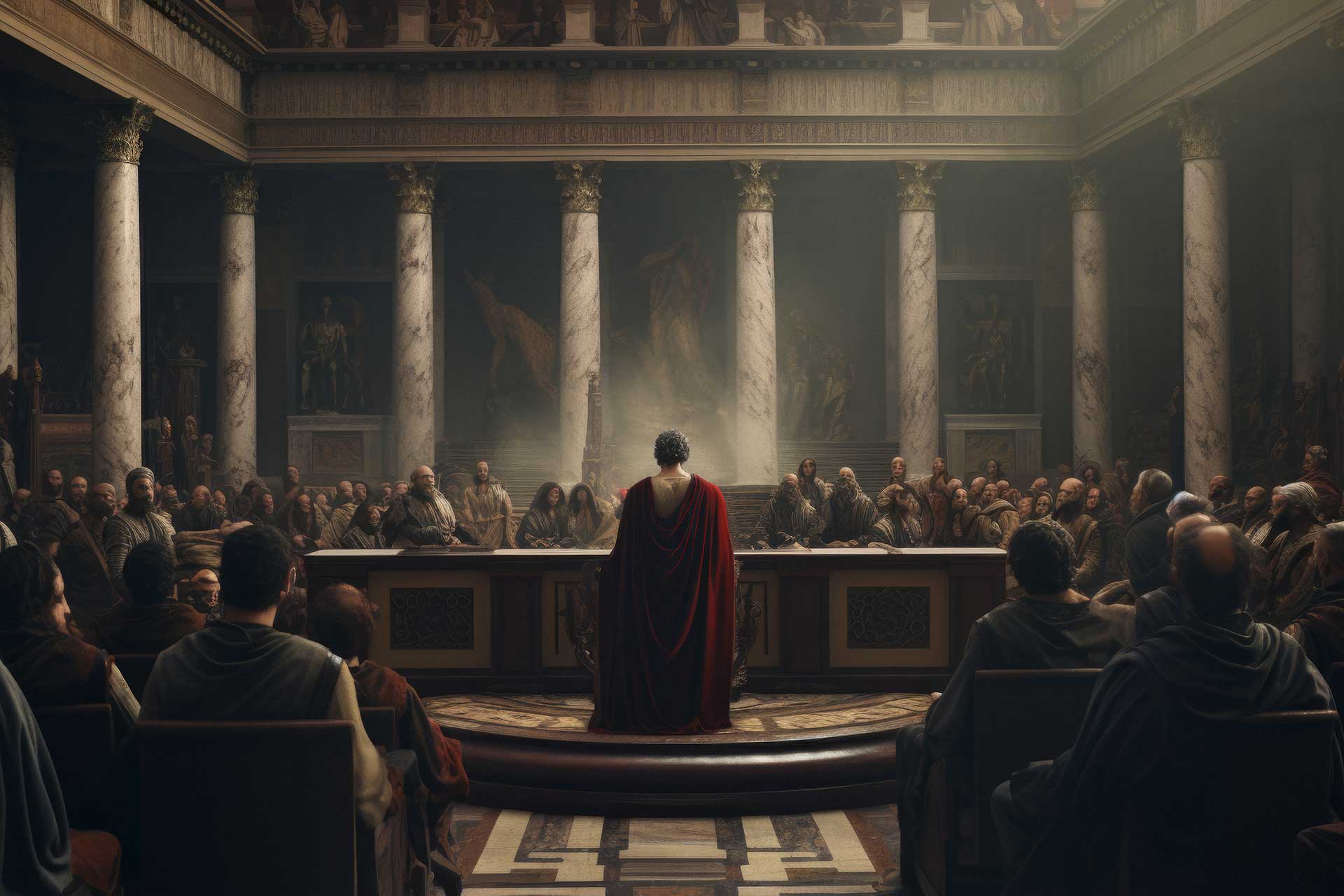Political philosophy is at least as old as Plato (428/227 or 424/423-348/347 BC) and is concerned with the nature of the state and, more broadly, with coercive institutions, and their justification. One central question, therefore, is whether political rights and obligations can exist independently of state membership, and what rights and obligations may be lost or gained by becoming a member (subject or citizen) of a state. This question immediately leads into how we might justify the existence of a state—such as a natural consequence of enlightened self-interest, or a contractual exchange of individual liberties for social benefits—and the nature of our political and moral obligations to that state.
Provided that some form of state system is deemed desirable, a second set of questions concerns how it is to be organized. This includes issues about the size and scope of the state —independent city-states, national states, or more global spheres of political influence—as well as the distribution of political power and representation. It is widely accepted that some form democracy is desirable, but this in turn raises difficult questions, not least because every democratic institution excludes some individuals from its franchise. A related question is whether democracy is an intrinsically valuable form of political organization or must be justified on more pragmatic grounds, such as the reliability of its decision-making.
Finally, more specific questions concern specific functions of the state. While any state necessarily entails certain constraints on individual liberty, there is arguably a distinction to be made between positive and negative constraints—that is, whether a failure to offer help constitutes a restriction on an individual’s liberty. Another important function of the state may be to ensure that the distribution of goods within the society is just, but different political philosophies defend different accounts of justice. On the one hand, we might judge a particular distribution as just if it meets certain criteria at a particular moment of time (such as the standard that everybody has the same). On the other hand, we might judge a given distribution as just if it arose from an ongoing process that meets certain criteria (such as the standard that everybody keeps what they have earned).




































